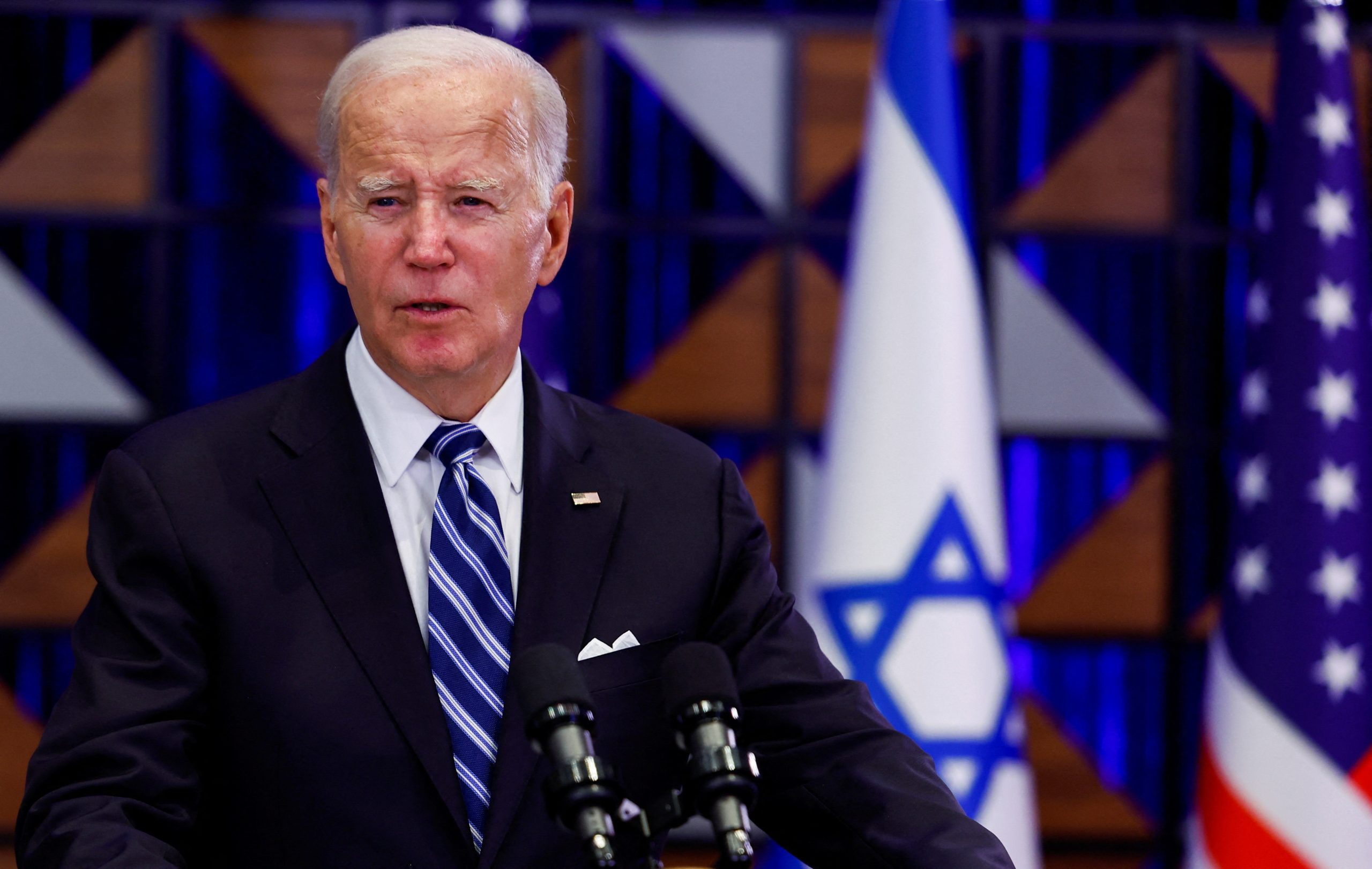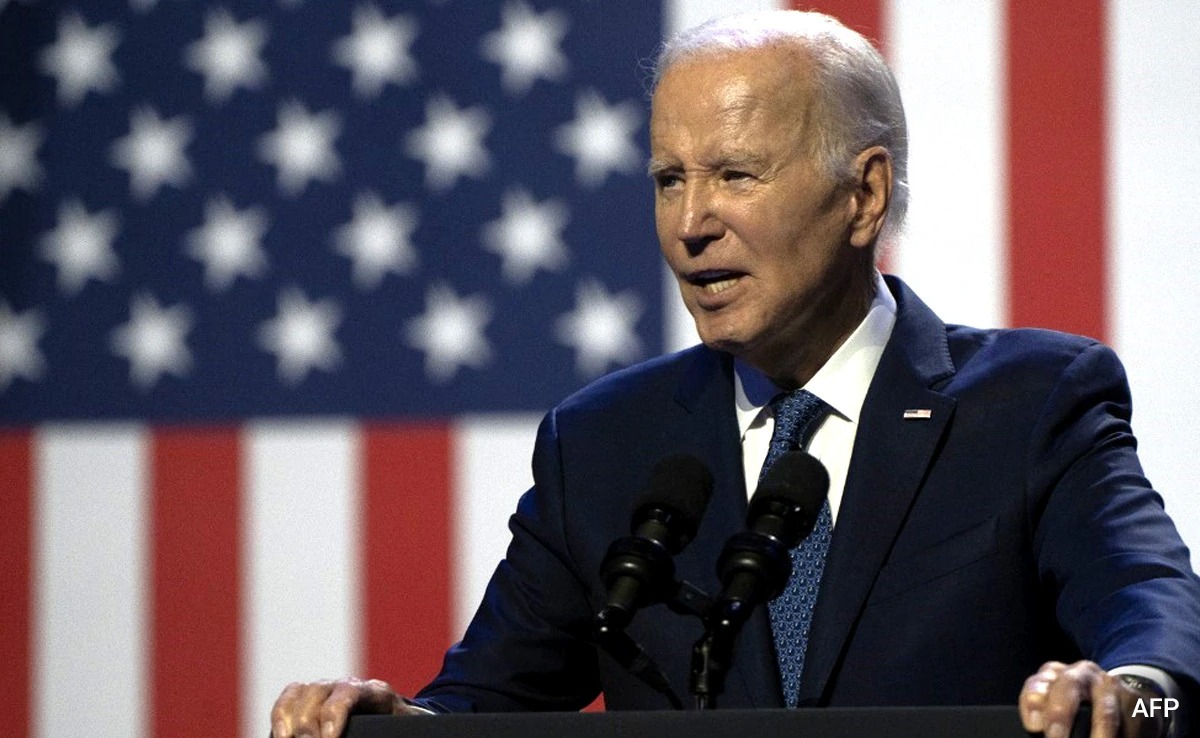With the possibility of an Israeli offensive against the Gaza border town of Rafah looming, the fate of 1.3 million Palestinian refugees hangs in the balance.
President Biden risks inviting humanitarian disaster and harming U.S. interests in the Middle East if he fails to clearly communicate to Prime Minister Benjamin Netanyahu and the Israeli Right that U.S. support for the current conflict will be contingent on Israel’s actions.
The current approach lacks conditions on Israeli actions, with President Biden expressing frustrations with Netanyahu but reiterating unwavering U.S. support regardless of Israeli conduct.
The Biden administration must recognize that the United States has its own interests at stake and a responsibility to uphold the accepted laws of armed conflict.

Joe Biden (Credits: Reuters)
The administration must depart from this policy and establish guidelines, including imposing conditions on the supply of munitions. This is not without precedent, and time is of the essence.
Israeli officials have indicated intentions to militarily engage Rafah soon, citing the presence of significant Hamas forces and likely senior leaders in the town. However, how Israel’s offensive in Gaza has unfolded thus far has created a potentially volatile situation.
Israel has encouraged residents of northern and central Gaza to move southward, toward Rafah and Al Muwasi, near the Egyptian border. This relocation has resulted in more than half of Gaza’s population being concentrated in this area, where they could potentially be trapped by a southward military advance and pushed into Egypt.
While several senior Israeli officials have openly discussed the concept of “voluntary emigration” of Gazans, a notion that President Biden has explicitly rejected, the level of destruction inflicted on Gaza’s housing infrastructure appears designed to render it uninhabitable, with reports of buildings being demolished after residents flee.
Israeli policies and actions have also hindered the delivery of food and other humanitarian aid to Gaza, leading to a dire situation where a quarter of Gaza’s population faces severe hunger and starvation.
President Biden has raised concerns about Palestinian food insecurity with Netanyahu but has expressed frustration with Israeli obstacles to aid delivery, including allowing protesters to obstruct the Kerem Shalom border crossing where aid shipments are inspected.
Despite Netanyahu’s assurances to President Biden that U.S. aid would be permitted, Israeli Finance Minister Bezalel Smotrich is reportedly blocking a large shipment of U.S.-funded flour at the port of Ashdod.
This obstruction, combined with the concentration of refugees near the border and inadequate food supplies, could create pressure for Palestinians to cross into Egypt, a scenario Egypt is reluctant to accept and is preparing to manage.
Apart from the immediate crisis, the Biden administration’s current policies have some positive aspects. They recognize the need to contain the conflict, dissuading Israel from launching a simultaneous campaign in Lebanon against Hezbollah, which could escalate tensions further.
The administration has also responded judiciously to provocations from Iranian proxies in the region, avoiding escalation with Iran.
Furthermore, the administration has acknowledged the failure of previous strategies to address the Palestinian issue and has articulated a goal of advancing toward a Palestinian state while normalizing relations with Arab states.
However, there is a disconnect between these longer-term aspirations and the current U.S. policy, which fails to hold Israel accountable for its actions, despite the administration’s desire for an extended ceasefire to facilitate progress toward these goals.
Currently, the Netanyahu government appears determined to proceed with the Rafah offensive, disregarding Biden’s warnings. Netanyahu’s decision not to send the Israeli delegation back to Cairo for further negotiations on a potential ceasefire and hostage-for-prisoner swap indicates a lack of willingness to heed U.S. advice.
Despite U.S. frustrations and warnings, there are no indications of consequences for Israel’s actions. It is imperative for the United States to enforce compliance with the law of armed conflict by conditioning military aid and resupply on adherence to these principles.
Failure to do so not only undermines broader U.S. interests in the region but also risks escalating tensions and endangering regional stability.
President Biden must ensure that his warnings are taken seriously and that Israel faces consequences for defying U.S. admonitions regarding the treatment of Palestinians in Gaza.
























